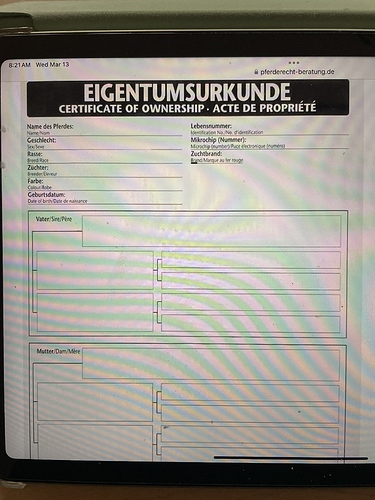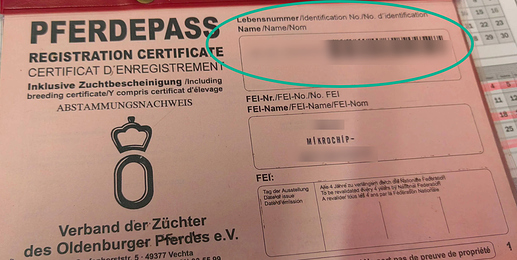Are the white papers in German only? Or does it also include English and French? Is it the same as what Manni posted (a Certificate of Ownership)?
And does that paper reflect his UELN number (Lebensnummer)? For Oldenburg, it should be DE 433 followed by a nine-digit number starting with 33 - so DE 433 33xxxxxxx. The 33 indicates the Oldenburg Verband and the x’s will be numbers, with the last two digits corresponding to his year of birth. And IIRC the two digits previous to that should match the number beneath his brand (if he is branded).
If he has a Lebensnummer, he should also have a passport - he could not travel within the EU or be exported without it. Tell the seller you want to see his passport (pink papers). It should look similar to the image below. If they can’t show you a passport, then my guess is that a previous owner or the importer lost it or tossed it. If you have the Certificate of Ownership, you may be able to get the Oldenburg Verband to issue a duplicate passport, as long as there is a legal ownership trail. You may not need the passport though unless you want to sell him (buyer may want it), or unless you want to compete for breed awards through USEF (although they may accept just the Certificate of Ownership - don’t really know).
And the reason they issue both a passport and a Certificate of Ownership is that in Europe, the passport has to travel with the horse - always. So an owner that has a horse in training somewhere will keep the Ownership Certificate but send the passport to the training barn with the horse. They are supposed to record all vax, etc. in the passport but I know that isn’t always done.
[Edited the image to show where the Lebensnummer should be. I have blurred out the horse’s identity info (numbers and name).]



